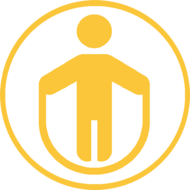Beaverton School District - MS and HS Health Lessons on Fentanyl
(View Complete Item Description)Teacher resources, MS and HS lessons on fake pills made of fentanyl - fentapills. Deaths from fake pills with fentanyl are surging across the country and right here in our own school district. In the past 18 months, we've lost several students to fentanyl-related poisonings — teenagers who had hopes and dreams and plans. These teenagers had families who loved them and are still coming to grips with their losses. Teens are purchasing what they think are OxyContin, Percoset or Xanax pills via social media, but drug dealers are making these fake pills with the cheaper, stronger and more deadly synthetic drug called fentanyl to increase their profits. Fentanyl is up to 50 times more potent than heroin and 100 times more potent than morphine. Fentanyl is odorless, tasteless and colorless. Teens never know what they’re getting. One pill can kill them. One pill.
Material Type: Lesson, Lesson Plan, Teaching/Learning Strategy














